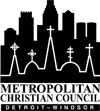The Pastor’s Corner, by
Roger Skully, Cantor, the Isaac Agree Downtown Synagogue
“Lashon Hara” (bad speech, and a reflection on the recent political scene)
We live in a very complex world. Our sources for information, good, bad, and incorrect are ubiquitous. We receive news via many sources when we open our “smart” phones or laptops. Often, we are unable to “fact check” all of the information thrust at us from news, television, and social media. The recent election is a good jumping off place for a plethora of often-questionable input.
It is informative to look at the Code of Jewish Law, the “Shulchan Aruch” for some guidance on the issue of speech. Rabbi Yosef Caro elucidated this code in the 16th century and it literally means “the set table.” It is a handy reference to the 613 mitzvot or commandments in scripture. It relates to all aspects of life, death and everything in between. Jews view actions as more important than belief, the opposite of Christian thought on the subject. In other words, if you do correctly, that is what is important. Belief is secondary and hopefully will come from carrying out the mitzvot. Paul, of course, argues that belief is primary and will then encourage proper behavior. This difference is crucial to understanding the differences between Jewish and non-Jewish thought. Rabbi Caro enumerates the laws of what is and is not permitted. There is, of course, a small section on the use of speech.
Most people are aware of the injunction in the “Ten Commandments” regarding “bearing false witness.” This refers to testimony in a court of law. In fact, this transgression of false swearing under oath in court can be a capital offense. But what does the law say about other speech issues?
It is written (Leviticus 19:16): “Do not go about as a gossiper among your people, do not stand inactive while the blood of your fellow (neighbor) is shed, I am the Lord.”
“It is forbidden to tell someone what others have said or done behind his back, if there is even the slightest possibility that it may cause ill will. Also the Hebrew word “gossiper” is related to the word “peddler” because a gossiper goes from person to person and house to house peddling his slander and gossip. (Rashi, 12th century commentary).”
Gossiping is a great sin and has been the cause of much bloodshed. “This is why the Torah follows up this commandment by warning against standing aside while someone’s blood is shed (Rambam, Maimonides, 12th century commentary).” These injunctions apply even if the information is true.
If one speaks disparagingly of another, even if true, it is slander. We might call this “defamation of character” in today’s world. There are many shades of slander. Even if one stays silent about another and says they do not wish to tell, that is slander. Also, speaking of someone’s virtues in the presence of their enemies is wrong because it could provoke trouble. If one speaks pretending innocence or jest, that is also slander.
We need to be careful with words. A wise friend likes to say, “Before words are spoken, you are their master; after they are spoken, they are your master.” This is a high ethical bar that is set in a world with too much information present.
A man who slandered went to his Rabbi to seek a remedy. The Rabbi told him to go home, take a feather pillow, and shake out all the feathers. Then return for further instructions. He was then told to collect all the feathers and return them to the pillow. We should all speak and listen carefully, with discernment.
Amen and Amen
